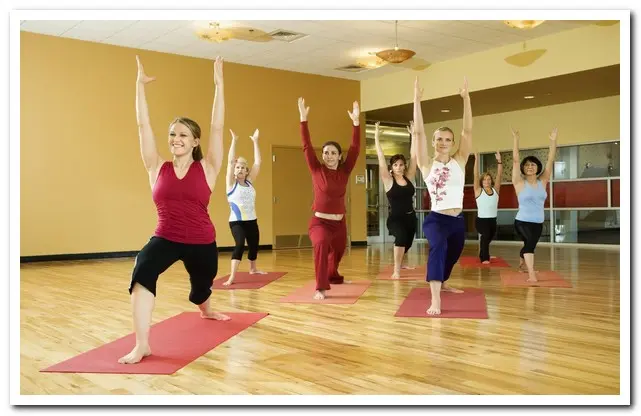Yoga Therapy in Rehab Centers for Addiction
Yoga focuses on teaching people a new lifestyle, way of thinking, and way of being in the world. The main emphasis is on general well-being. Although yoga is not considered a therapy for specific illnesses, it has been shown to help in a variety of conditions. Among the poses and techniques used therapeutically in yoga are asana (the physical postures), Pranayama (breathing exercises), meditation, and guided imagery. Diet is also an integral part of yoga and therefore a large part of yoga therapy.Holistic Drug Rehab Centers
Holistic and natural healing drug rehab centers treat addiction as a condition and not a disease, focusing on the mind, body, and spirit as a whole. Therapy consists of treating each of these areas to help the client achieve their freedom from addiction. Some of the latest trends in the battle against addiction have included holistic or natural healing centers for addiction. These programs offer unique alternative treatment therapy models coupled with natural healing techniques to achieve a high success rate. Programs typically range from 30 days to 6 months in length. Holistic rehab centers can incorporate yoga, massage therapy, meditation, and acupuncture , and some even offer karate and martial arts training. Please give us a call 24 hours a day, 7 days a week, and we can help you locate a holistic drug rehab center near you or anywhere in the United States.1-800-513-5423

“He who has health has hope and he who has hope has everything.” ~ Arabian Proverb
What Is Yoga?
Yoga is a form of mind-body fitness that involves a combination of muscular activity and an internally directed mindful focus on awareness of the self, the breath, and energy. Four basic principles underlie the teachings and practices of yoga’s healing system. The first principle is that the human body is a holistic entity comprised of various interrelated dimensions that are inseparable from one another, and the health or illness of any one dimension affects the other dimensions. The second principle is individuals and their needs are unique and, therefore, must be approached in a way that acknowledges this individuality, and their practice must be tailored accordingly. The third principle is yoga is self-empowering; the student is his or her own healer. Yoga engages the student in the healing process; by playing an active role in their journey toward health, the healing comes from within instead of from an outside source, and a greater sense of autonomy is achieved. The fourth principle is that the quality and state of an individual’s mind is crucial to healing. When the individual has a positive mind-state, healing happens more quickly, whereas if the mind-state is negative, healing may be prolonged.
Medical yoga is a yoga practice for the prevention and treatment of medical conditions. Beyond the physical elements of yoga, which are important and effective for strengthening the body, medical yoga also incorporates appropriate breathing techniques, mindfulness, and meditation to achieve maximum benefits. Multiple studies have shown that yoga can positively impact the body in many ways, including helping to regulate blood glucose levels, improve musculoskeletal ailments, and keep the cardiovascular system in tune. It also has been shown to have important psychological benefits, as the practice of yoga can help to increase mental energy and positive feelings and decrease negative feelings of aggressiveness, depression, and anxiety.
1-800-513-5423

Self-discovery and Self-development
Yoga can be used to help people become aware of themselves on both a physical and psychological level. This allows people to take early action, such as improving posture, when discomfort is first noticed. People who study yoga learn to relax and they can use the technique whenever pain appears. Practicing yoga can give chronic pain sufferers useful tools to actively cope with their pain and to help counter their feelings of helplessness and depression.One of the common techniques used in yoga is breathing through one nostril at a time. Electroencephalogram (EEG) studies have shown this type of breathing through one nostril results in increased activity on the opposite side of the brain. Some experts have suggested that the regular practice of breathing through one nostril may help improve communication between the right and left sides of the brain. Yoga can enhance a person’s cognitive performance. A study of 23 people found that breathing through one nostril resulted in better performance of tasks associated with the opposite side of the brain. Other studies show this increased brain activity is associated with better performance. Give us a call today to learn more about yoga in recovery.
1-800-513-5423

Practicing yoga can give chronic pain sufferers useful tools to actively cope with their pain and to help counter their feelings of helplessness and depression.
Moodiness and Energy
Virtually everyone who participates in yoga over a period of time reports a more positive outlook and increased energy level. A British study of 71 healthy volunteers aged 21 to 76 found that a 30-minute program of yogic stretching and breathing exercises was simple to learn and resulted in a “markedly invigorating” effect on perceptions of both mental and physical energy and improved mood. In a study that compared relaxation, visualization, and yoga, it was found that the yoga group had a significantly greater increase in mental and physical energy and an increased feeling of alertness and enthusiasm over the other groups. Relaxation tends to make people more sleepy and sluggish after a session, and visualization seems to make them more sluggish and less content.Yoga and Mental Well-being
People who practice yoga seem to experience several factors that result in a profound effect on their mental health.2. Restoration of Flexibility: The positive benefits from a full round of yogic exercises may be described as a renewal of mental quickness. Both mood and capacity for alertness, attentiveness, and willingness to tackle problems revive. A person may not be able to reignite enthusiasm late in a working day; early morning or even noonday, efforts to recharge mental energies can ignite a full measure of willingness. Traditional phrases, such as restored “spiritual vitality,” intend to convey the complex idea of mental spryness, agreeableness, resiliency, and feelings of confidence and self-sufficiency. Some even testify to attaining feelings of buoyancy and euphoria; these then provide a background or mood of well-being and assurance such that one naturally more fully enjoys both his ability and the worthiness of being more tolerant and generous.
3. Personal Worth: Avoidance of fear: Yoga is said to result in the reduction of a variety of mental illnesses. These may range all the way from vague feelings of frustration, persecution, and insecurity, on the one hand, to acute and specific types of insanity, on the other.
4. Acceptance of Faith in Life: The goal of yoga is to live confidently. The goal is to replace negativism and cynicism with an appreciation of life, not only on any given day but every day. If you cannot accept all of it, because some problems remain unavoidably troublesome, then you will accept the troubles which you have as (1) yours and (2) enough for you, without wishing you had still more troubles.
5. Life Skills: Yoga may reduce your irritability with others and others’ irritability with you. If you become less irritable, you tend to irritate others less and tend to be less irritated.
1-800-513-5423

Yoga is not a cure-all for all conditions. But its attack upon some basic mental illnesses may indeed be just enough to pay dividends that grow in magnitude. If we can merely halt and reverse some mental compulsions that keep us chained to increasing anxiety, we may be able to embark on a course that will bring us around to a healthier lifestyle. We are all, to some degree, insane. Overwhelming waves of tension and stress, which may catch us in periods of physical and mental exhaustion, can produce a spiritual explosion that leaves us so helpless that we are at a loss to know how it all came about. By regular efforts to reduce tension through yogic exercises, we may finally reverse our tendency toward real or imagined fears and anxieties.
Our addiction treatment specialists and staff have over 25 years of experience helping people find effective and affordable treatment for all addictions. What you tell us is completely confidential. We are HIPAA compliant. We are here to answer your questions and get you (or a loved one) into treatment today. If you are looking for a treatment center that incorporates yoga therapy, please call now. For immediate intake, call us now.
1-800-513-5423

Our certified addiction specialists are here to answer any questions that you may have. Please call us toll-free today. We are here for you 24 hours a day, 7 days a week.
Sources
Exploring the therapeutic effects of yoga
Medical Yoga Therapy
Erik Epp – Content Author



